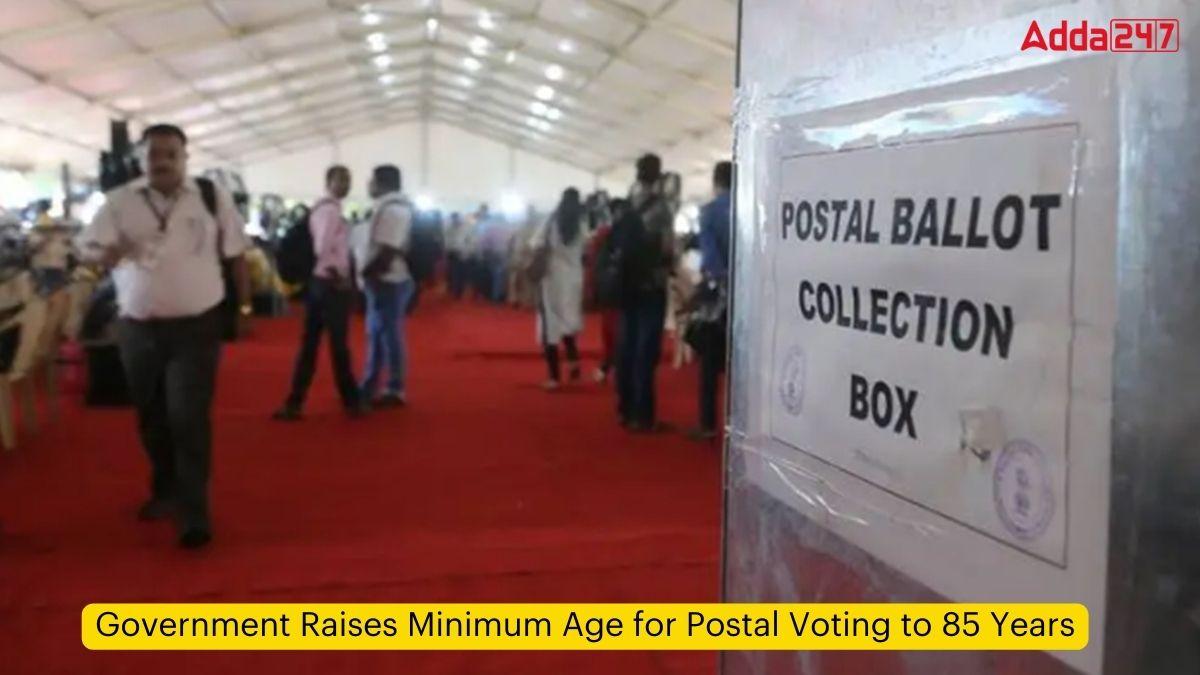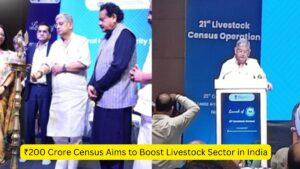In a significant development, the Indian government, following consultations with the Election Commission of India (ECI), has revised the minimum age criterion for senior citizens to avail the postal ballot voting facility. The decision, which comes into effect immediately, raises the eligibility age from 80 to 85 years, marking a pivotal change in the electoral process aimed at ensuring greater convenience for the nation’s elderly population.
Recent Changes Explained
According to the most recent electoral data published on February 8, India boasts a staggering electorate of 96.88 crore, with 1.85 crore citizens above the age of 80. Under the amended Conduct of Election Rules, 1961, the definition of “senior citizens” eligible for postal ballot voting has been updated in Section 27(A) (e) to include only those above 85 years, replacing the previous threshold of 80 years.
This revision targets a “notified class of electors” that encompasses essential service workers, persons with disabilities, individuals diagnosed with or suspected of having Covid-19, and now, senior citizens above 85 years. The adjustment is seen as a response to the evolving demographic profile of the country’s electorate and aims to streamline the voting process for those most in need of assistance.
Understanding Postal Ballots
Postal voting offers a select group of voters the ability to participate in elections remotely. This facility is crucial for voters who are unable to physically attend polling stations due to various reasons, including occupational duties, health concerns, or personal circumstances. Eligible voters, through postal ballots, can mark their preferences and return the ballot to the election officer before the commencement of vote counting.
Eligibility for postal voting extends to members of the armed forces, state armed police force personnel stationed outside their home state, government employees stationed overseas and their spouses, and voters under preventive detention. Additionally, high-ranking officials such as the President, Vice President, Governors, Union Cabinet ministers, and the Speaker of the House, along with government officers on election duty, can opt for this voting method.
The process ensures that ballot papers are dispatched promptly after the nomination period, allowing ample time for voters to return their ballots ahead of the counting date. For members of the armed forces and other specified categories, the ballots are sent either through postal service or electronically, depending on the voter’s circumstances.
Recent Developments and the Pandemic’s Impact
The extension of postal ballot facilities to include persons with disabilities, absentee voters in essential services, and senior citizens above 80 years was first introduced in 2019, following an amendment to the Conduct of Elections Rules. This move, recommended by the ECI, aimed at enhancing electoral participation across these groups.
The onset of the Covid-19 pandemic saw further adaptations, with postal ballot facilities extended to those infected or suspected of being infected, beginning with the Bihar Assembly elections in 2020. However, the eligibility was not broadened to include individuals above 65 years, a decision reaffirmed by the ECI. The most recent amendment, dated August 23, 2023, reverted the eligibility age for postal ballots to 80 years from the temporarily lowered age of 65 years, before the latest adjustment to 85 years.
Important takeaways for all competitive exam
- Election Commission of India, Nirvachan Sadan, Ashoka Road, New Delhi;
- 25th Chief Election Commissioner: Rajiv Kumar;
- Election Commission of India Founded: 25 January 1950.



 ₹200 Crore Census Aims to Boost Livest...
₹200 Crore Census Aims to Boost Livest...
 EIB Funds ₹2,800 Cr for Bengaluru Subu...
EIB Funds ₹2,800 Cr for Bengaluru Subu...
 Govt Announces Extra Pension for Seniors...
Govt Announces Extra Pension for Seniors...

